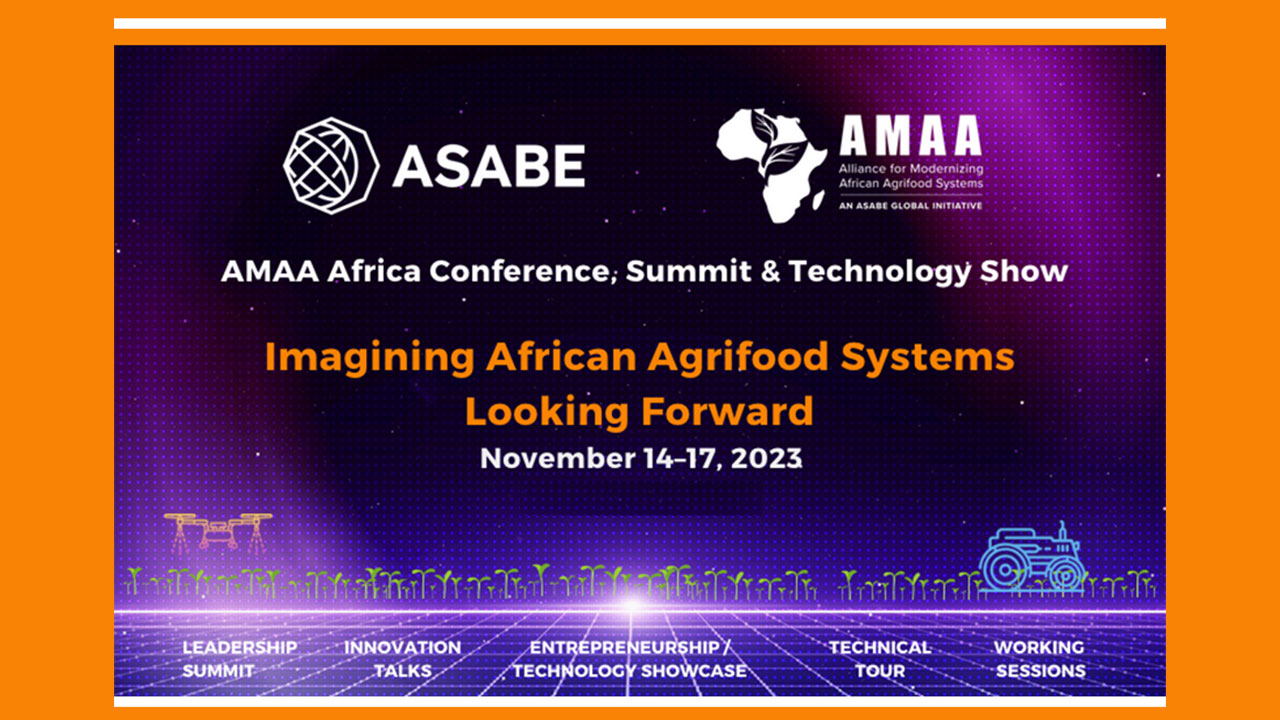
Agricultural and Biological Engineers Aim to Uplift African Agrifood Systems
The ASABE AMAA 2023 Conference, "Imagining African Agrifood Systems," was held November 14–17 in an all-virtual and bilingual mode. We are pleased to report that it was a success, presenting many opportunities for continued growth toward AMAA's vision of a modern, productive, and profitable agrifood system in sub-Saharan Africa.
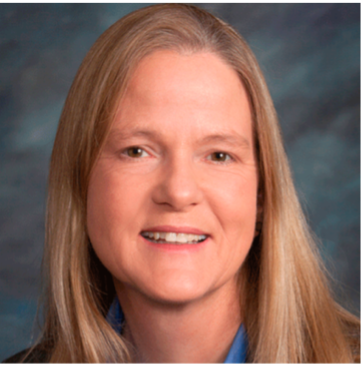 The conference began with two concurrent workshops, on smart agriculture and entrepreneurship. These events were well attended with over 90 participants. Remote satellite locations for the workshops included KNUST, Kumasi, Ghana; UNN, Nsukka, Nigeria; and Makerere, Kampala, Uganda.
The conference began with two concurrent workshops, on smart agriculture and entrepreneurship. These events were well attended with over 90 participants. Remote satellite locations for the workshops included KNUST, Kumasi, Ghana; UNN, Nsukka, Nigeria; and Makerere, Kampala, Uganda. 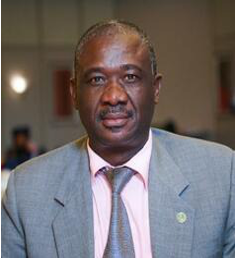
The main conference began at wee hours of the morning in the US, as the event was based on Senegal time (GMT). Despite the early start, more than 120 took part. In opening remarks, ASABE President Dana Porter emphasized the importance of global engagement to address global challenges. Porter was followed by the keynote speaker, Emmanuel Njukwe, director of research and innovation at CORAF (Council for Agricultural Research and Development), in Senegal. Njukwe gave an impactful presentation emphasizing the need to modernize African agrifood systems to address global challenges.
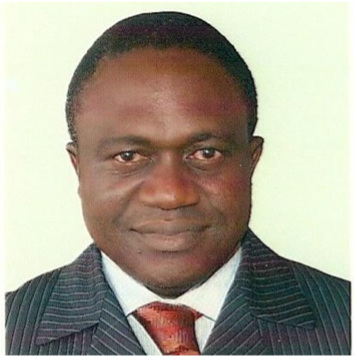 Conference Presentations Support Emerging Agricultural Technology
Conference Presentations Support Emerging Agricultural Technology
Technical sessions aligned with the four pillars of AMAA and were highly substantive, addressing issues pertinent to the goals and objectives of AMAA. A technology showcase was also held virtually and featured twenty booths that showcased emerging technologies. A session hosted by ASABE's Young Professionals Community on careers in agriculture and biological engineering was well attended.
Technical sessions were followed by a Summit to lay a path forward for AMAA. Michael Faborode, president of the Pan African Society for Agricultural Engineering, gave an excellent presentation entitled, "The Africa We Want and Deserve," which was well received. Another highlight of the program was a special session on listening to the needs of the agrifood industry from the private sector.
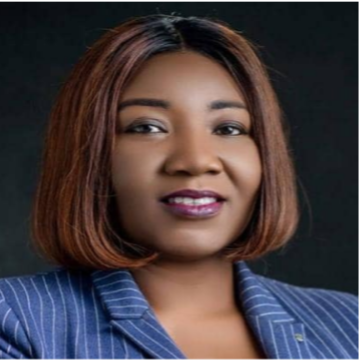
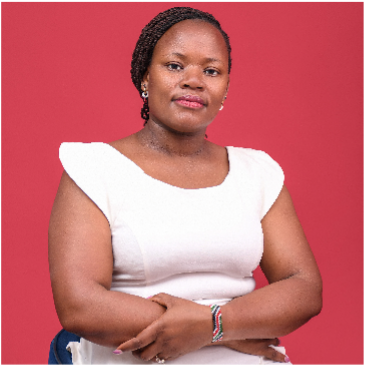
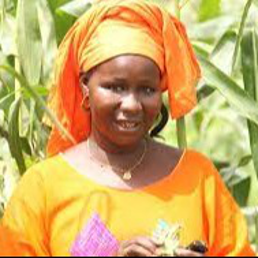 Tola Johnson, Catalyst Gold Agro-Allied Industries Limited, Nigeria and Queen L'Ombaka, Techwin Ltd, Kenya gave highly pertinent and impactful presentations, and their messages were reinforced by Nimna Dieyte, Federation of Maize Producers of Senegal. Their remarks amplified our tagline, “taking a business approach to modernizing African agrifood systems," with Johnson, L'Omboka, and Dieyte speaking respectively about the poultry value chain in Nigeria, dairy in Kenya, and maize in Senegal, while emphasizing the need for technologies in those value chains.
Tola Johnson, Catalyst Gold Agro-Allied Industries Limited, Nigeria and Queen L'Ombaka, Techwin Ltd, Kenya gave highly pertinent and impactful presentations, and their messages were reinforced by Nimna Dieyte, Federation of Maize Producers of Senegal. Their remarks amplified our tagline, “taking a business approach to modernizing African agrifood systems," with Johnson, L'Omboka, and Dieyte speaking respectively about the poultry value chain in Nigeria, dairy in Kenya, and maize in Senegal, while emphasizing the need for technologies in those value chains.
The session on academic and professional society leaders facilitated by Ajit Srivastava was well attended by individuals from North America and Africa. Overall, the four-day conference was well attended and presented a robust and informative program. AMAA co-chair Klein Ileleji, in closing remarks, commented that he suffered from jet lag without leaving his house.
We wish to give special acknowledgment to the members of ASABE's Young Professionals Community who volunteered their time in managing the virtual-conference technology—the Whova platform, Zoom links, and recorded presentations. We are very thankful for their time and dedication to the success of this conference.
We thank ASABE Initiatives Fund and the sponsorship of Michigan State University, the University of Arkansas, and Jua Industries for their support of the conference.